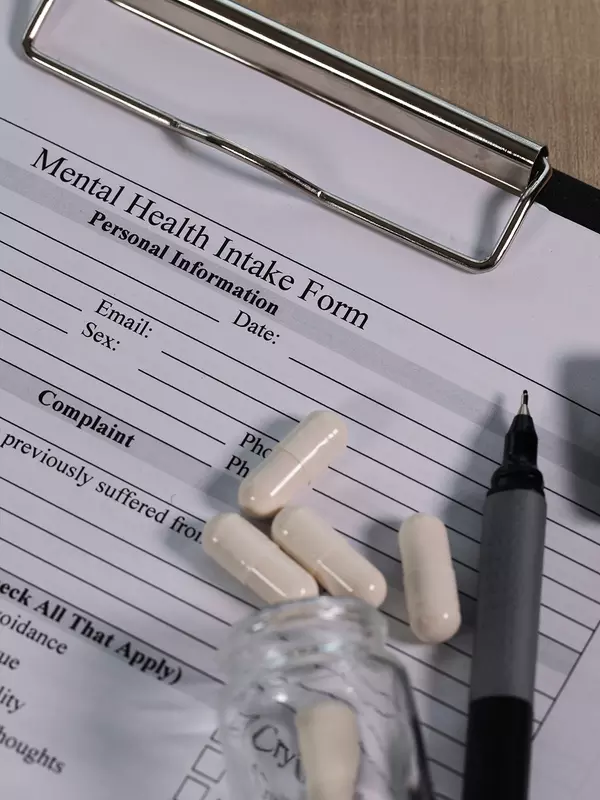
You can now access your health data information
Member health data
As a County of Santa Clara Behavioral Health Services Department (BHSD) member, you can view your health data on your chosen approved third-party apps. Transforming the way you can access your health information transforms how you manage your overall health.
Member rights and risks
You can grant consent to share your health data with any chosen third-party app. When you consent, we are required to make your health data available to the third-party app within 1 business day.
However, for the third-party app to be able to access your data, the third-party app needs to register with us.
There are no apps available at this time, check back in the future to view a list of registered apps and their risk scores.
A federal law called the Health Insurance Portability and Accountability Act (HIPAA) gives you the right to see and get a copy of your health record. Most health insurance plans and health care providers — including doctor's offices, clinics, hospitals, pharmacies, labs, and nursing homes — must follow this law. The U.S. Department of Health and Human Services (HHS) Office for Civil Rights (OCR) enforces the HIPAA Privacy, Security, and Breach Notification Rules, and the Patient Safety Act and Rule.
We call the entities that must follow the HIPAA regulations "covered entities." Covered entities include:
- Health Plans, including health insurance companies, HMOs, company health plans, Medicare, and Medi-Cal Managed Care Plans.
- Most Health Care Providers—those that conduct certain business electronically, such as electronically billing your health insurance—including most doctors, clinics, hospitals, psychologists, chiropractors, nursing homes, pharmacies, and dentists.
- Health Care Clearinghouses—entities that process nonstandard health information they receive from another entity into a standard (i.e., standard electronic format or data content), or vice versa.
Many organizations that have health information about you do not have to follow these laws. Examples of organizations that do not have to follow the Privacy and Security Rules include:
- Life insurers
- Employers
- Workers compensation carriers
- Most schools and school districts
- Many state agencies like child protective service agencies
- Most law enforcement agencies
- Many municipal offices
Most third-party apps will not be covered by HIPAA. Most third-party apps will instead fall under the Federal Trade Commission (FTC) jurisdiction and the protections provided by the FTC Act. The FTC Act, among other things, protects against deceptive acts (e.g., if an app shares personal data without permission, despite having a privacy policy that says it will not do so).
The FTC has information about mobile app privacy and security for consumers, click on the link to learn more: https://www.consumer.ftc.gov/articles/0018-understanding-mobile-apps
Before you share your health information with a mobile app or third-party, look for the privacy policy that explains how it will use your health care data. Do not use the app if it does not have a privacy policy. If the app's policy does not answer the questions below, you should not share your health information with the app. Consider the following questions:
- What information will the app collect? Will this app also collect non-health information from my phone or computer, such as my location?
- How will my health information be saved?
- How will this app use my health information?
- Will this app share my information? If so, with who and why?
- How can I limit the app's use of my health information?
- How does this app protect my information?
- Does this app have customer service contact information?
- How do I stop sharing my health information with the app?
- Will the app delete my information when I stop sharing it?
- Will the app let me know when there are changes to its privacy practices?
It's also important to know about the privacy settings on apps. When you download apps, they often ask for permission to access personal information like contacts, location, or even your camera. Ask yourself, does the app really need to access your location or photos to do its job?
A specific example of risk to your data is called secondary usage. When your data is shared with and controlled by a third-party app, they may use your data in other ways, such as for advertising. Pay close attention to the privacy policy and user agreement provided by the app.
If you think the safety of your data could be compromised by the third party, you can immediately stop sharing your BHSD-held data with them by contacting the BHSD Call Center.
Social engineering attacks, in which scammers try to access your health information, are becoming increasingly complex. Beware of people or organizations posing as representatives of third-party health apps to trick you into sharing your sensitive information. Sometimes called “phishing scams,” these could be phone calls or emails pretending to be a trustworthy company or person requesting your information.
You can protect yourself with these tips:
- Keep your anti-virus/anti-malware software updated.
- Use and check your email filters and spam filters.
- Use multi-factor authentication for important accounts.
- Don’t respond to requests for personal information or passwords.
- Don’t open email from a suspicious source.
- Don’t click on links received in an email from a suspicious sender.
- Don’t download or open attachments in an email from an unknown sender.
- Don’t use the same password for multiple accounts.
For more information on how to protect yourself from social engineering scams, or if you think you may have been a victim of such a scam, visit the FTC's site on phishing scams.
Third-party apps are managed by individuals or organizations outside of BHSD.
Third-party apps
Third-party apps are managed by individuals or organizations outside of BHSD.
The Provider Directory Application Program Interface (API) is a recent development aimed at delivering current details regarding healthcare providers and facilities to beneficiaries of the Centers for Medicare & Medicaid Services (CMS). Through this API, beneficiaries can explore healthcare providers and facilities based on various factors such as location, specialty, and other criteria.
This API emerged as a response to the CMS Interoperability and Patient Access Final Rule. This regulation mandates health plans to furnish beneficiaries with access to precise and promptly updated provider directory information through an API. The rule's objective is to enhance access to care and guarantee that beneficiaries possess the necessary information to make well-informed decisions concerning their healthcare.
API Description
The Provider Directory guide is built on the Fast Healthcare Interoperability Resources (FHIR) STU3 API and serves as the cornerstone of a comprehensive provider directory. It delineates the scenarios and search criteria for locating a practitioner or organization, while also specifying the essential data elements and offering fundamental query instructions. The elements outlined in this guide aim to establish a groundwork for a centralized Provider Directory.
For more information about how to use the API, please refer to the API’s Documentation: NDE | API Methods (netsmartcloud.com)
For more information, click here to access the Developer’s Portal.
As part of The Centers for Medicare and Medicaid Services (CMS) Interoperability and Patient Access Rule, BHSD implemented a publicly available Patient Access Application Program Interface (API) which seeks to establish beneficiaries as the owners of their health information with the right to direct its transmission to third-party applications.
API Description
The Patient Access API allows members to access their personal health information through a third-party application of their choosing. This API implements the HL7 Fast Healthcare Interoperability Resources (FHIR) implementation guides listed below.
- https://hl7.org/fhir/us/carin-bb/
- http://hl7.org/fhir/us/davinci-pdex/
- https://build.fhir.org/ig/HL7/davinci-pdex-formulary/
For more information about how to use the API, please refer to the API’s Documentation: NDE | API Methods (netsmartcloud.com)
For more information, click here to access the Developer’s Portal.
County of Santa Clara Health System Notice of Privacy Practices (2021)
Member Support
Questions and Complaints
Questions regarding data discrepancies
If you think your BHSD health data shown on the app is incorrect, you can reach out to the BHSD Call Center at 1-800-704-0900.
To file a privacy complaint, contact the Ethics, Privacy & Compliance Office at 408-885-3794.
If your complaint is not resolved to your satisfaction, you may also:
File a complaint with the Federal Trade Commission (FTC) or Office for Civil Rights (OCR)
For assistance with questions, please reach out to the BHSD Call Center.





